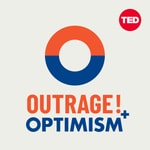Enquire, the Investor Relations podcast – Details, episodes & analysis
Podcast details
Technical and general information from the podcast's RSS feed.

Enquire, the Investor Relations podcast
Clara Melia
Frequency: 1 episode/25d. Total Eps: 38

Enquire, the Investor Relations podcast, is hosted by Equitory founder and CEO, Clara Melia. The purpose of Enquire is to bring together Investor Relations and Capital Markets professionals to share their experiences, best practice and offer listeners insights and ideas in the dynamic world of Investor Relations. Clara and occasional guest hosts from the Equitory team have the pleasure of having fascinating and informative conversations with some of the most experienced and well-respected people in the world of Investor Relations.
Recent rankings
Latest chart positions across Apple Podcasts and Spotify rankings.
Apple Podcasts
🇬🇧 Great Britain - entrepreneurship
13/12/2024#81🇬🇧 Great Britain - entrepreneurship
12/12/2024#84🇩🇪 Germany - entrepreneurship
16/11/2024#55
Spotify
No recent rankings available
Shared links between episodes and podcasts
Links found in episode descriptions and other podcasts that share them.
See all- https://www.nationalgrid.com/
20 shares
- https://www.equitory.com/
18 shares
- https://www.jpmorgan.com/
14 shares
- https://twitter.com/dmoshriver
4 shares
RSS feed quality and score
Technical evaluation of the podcast's RSS feed quality and structure.
See allScore global : 37%
Publication history
Monthly episode publishing history over the past years.
Episode 36: Deb Wasser - IR with a Difference: Etsy's Approach to Investor Relations
Episode 36
mardi 12 novembre 2024 • Duration 38:14
How does a global consumer brand like Etsy manage investor relations? And what does it take to lead IR successfully? In this episode of Enquire, the Investor Relations podcast, we sit down with Deb Wasser, VP of Investor Relations and ESG Engagement at Etsy, to uncover the secrets of a successful IR career.
The Secrets to Success in Modern Investor Relations
Throughout Deb’s journey in investor relations, she has taken on roles both on the consultancy side and in-house, switching between the two and picking up expertise and insights from both sides. She shares her unique experiences in this episode, and we hear her perspective on the most important traits to have in modern IR. As a former NIRI board member, we also learn about her work in the wider investor relations community.
As the conversation explores Deb's experiences at Etsy, we hear about its innovative approach to IR and how it adapted to the challenges of a post-pandemic market. Deb also outlines how ESG ties into her role and why Etsy made the bold decision to make corporate social responsibility a core KPI.
In This Episode:
- Deb takes us through her career and how she started in IR
- Why mutual trust between management in IR is the secret to success in IR
- How has IR changed since she began her career?
- An introduction to Etsy and Deb’s role
- What has been behind Etsy’s successful IR programme?
- Why Etsy continued the video earnings calls after the pandemic
- How Etsy’s IR team measures success
- Where ESG fits into Deb’s role in IR
- Etsy’s unique approach to measuring ESG performance
- Deb explains her previous experience as a NIRI board member
- How Etsy is embracing tech trends in IR
- Advice for entry-level IR
Quotes:
“We're a B2C business, and we are often in the news for good and for bad. And so you have to have really tight comms.”
“Most investor relations executives are good at many things. It’s a diverse bunch of skills that are critical for success.”
“Having mutual trust is the secret to success in IR, whether as a consultant or in-house. If you don't have it, it's not going to work.”
Resources:
EP 35: Edward Westropp - Lessons and Advice from Moving to an In-House IR Role
Episode 35
lundi 28 octobre 2024 • Duration 33:47
Many IR professionals begin their careers in various corporate finance roles, such as consultancy, data analysis, or capital markets. Each of those paths into IR comes with valuable insights and unique perspectives that can set you up for success.
Before Edward Westropp, Head of IR and Communications at WE Soda Ltd, took the leap into IR, he came with bags of experience in strategy and communications. As he grew in his career, he found himself moving from a consultancy firm to an in-house position – something he was hesitant to do. However, since then, he’s found his in-house roles rewarding, challenging, and full of valuable lessons. He joins Enquire, the Investor Relations Podcast, to share his story.
Navigating the Challenges and Rewards of In-House IR
In this episode, we hear Edward’s career backstory including his time navigating consultancy roles, communicating with board members, managing strategy around IPOs, and the inner workings of corporate finance. Edward shares his tips for entry-level IR professionals including the importance of networking, as well as his strategies for managing relationships with key investors during tricky markets and business structure changes.
We talk about the challenges of measuring success in IR, marketing a company to niche investor audiences, and his thoughts on the use of AI in the field. Edward also shares the lessons learned from moving in-house and how his previous roles helped set him up for success.
In This Episode:
- Edward explains his previous roles and varied experience
- Tips for entry-level IR professionals
- What led Edward to move from a consulting role based in London to an in-house investor relations role in Geneva
- What surprised Edward about switching to an in-house role
- His experience working in-house during an IPO vs. as an external consultant
- How working on debt IR programmes differed from equity IR
- Edward’s approach to managing his time and responsibilities in a busy role
- Why Edward uses meeting notes with investors as data insights
- The role of AI in investor relations
- How IR professionals can measure success
Quotes:
“Even when it comes to outlining an annual report you can use AI to make sure you never start with a blank sheet of paper, which is quite valuable and helps with time. It'll all be totally wrong, but at least you're immediately redacting rather than starting from scratch.”
“If you are going to go in-house, go in-house at the right level and in the right place.”
“The trick is to identify your echelon. And then take them out for a coffee. No one turns a coffee down, it's a bit like dating. Just have a thick skin and just go for it. Because those people that you're engaging with now, as you all grow and get more senior, will become useful people in your network.”
Resources:
Ep 26: Nicholas Ashworth - Measuring Success and Staying Innovative as an IR Leader in a Global FTSE 100 Company
Episode 26
mercredi 15 mai 2024 • Duration 42:53
Today’s guest on the Enquire Podcast is Nick Ashworth, the Director of Investor Relations at National Grid, one of the largest investor-owned utility companies in the world. It has a primary listing on the LSE, where it is a constituent of the FTSE 100 index and a secondary listing in the form of its ADRs on the New York Stock Exchange. Before National Grid, Nick spent 14 years as an equity analyst at Morgan Stanley, latterly leading the European Utilities equity research team, following four years covering consumer and retail stocks across Emerging European countries. In this episode, he shares his experience of transitioning from the sell side to investor relations and offers insight into managing, coaching, and developing an IR team at a large, growing organization like National Grid. We also discuss the value of evolving success metrics, Nick’s board communication and engagement tips, the important role that storytelling plays in IR, and much more!
Key Points From This Episode:
- Insight into Nick’s career journey and how it led him to National Grid.
- How his experience on the sell side informed his approach to investor relations.
- Nick’s take on how sell-side research has changed in the last 10 years.
- Ways that the IR function has evolved since he joined National Grid in 2019.
- What goes into managing, coaching, and developing an IR team.
- The keys to measuring success with National Grid’s 12-month rolling IR plan.
- Tips for communicating and engaging with the board, particularly for early-career investors.
- A look at Nick’s share register and marketing plan for the year ahead.
- Comments on the ADR program, conferences versus roadshows, and investor feedback.
- The importance of internal comms across a large, growing organization like National Grid.
- Regulatory challenges that come with having a split register between the US and UK.
- National Grid’s approach to AI tools for making the IR function more efficient.
- Passionate advice for anyone moving into investor relations from another industry.
Quotes:
“Particularly in a – through-COVID and then post-COVID – world, the way that we engage with investors changed hugely. Trying to find new and innovative ways to do it is important.” — Nick Ashworth [0:07:28]
“Whilst [the board has] lots of expertise in their areas, they’re not the financial communications experts for [the company]. They want to hear what you have to say. It’s a two-way dialogue.” — Nick Ashworth [0:17:14]
“There’s a storytelling function [to investor relations], but you can only do it if you know what’s happening with the numbers and you can see around corners.” — Nick Ashworth [0:35:27]
Links Mentioned in Today’s Episode:
Nick Ashworth on LinkedIn
National Grid
Grid Guide To… Series
Norges Bank's in Good Company Podcast
Equitory
Ep 25: Simon Whittington - IR and Corporate Development: The Expanding Responsibilities of a Former Sell-side Analyst and Experienced IR Professional
Episode 25
lundi 29 avril 2024 • Duration 35:51
With more than a decade of investor relations experience behind him, Investor Relations and Corporate Development Director at PZ Cussons, Simon Whittington, shares how his progression from a sell-side role to working in investor relations has enriched his knowledge. Tuning in today, you’ll hear about his experience at Merlin Entertainments, his thoughts on disclosure and communication, and insights from the past two years at PZ Cussons. Touching on board interactions and involvement, Simon offers his reflections from 2023 and shares his insights on what is required to attract and convert investors in 2024. Join us as we discuss measuring success, drawing wisdom by observing the approach taken by other companies, Simon’s advice for others looking to launch or improve a career in investor relations, and more!
Key Points From This Episode:
- Simon’s diverse career journey to date, starting at the City of London.
- Moving from the sales side to investor relations.
- Customising decision-making for Merlin Entertainments.
- Striking a balance between financial disclosure and privacy.
- How Simon’s development experience complements his work in investor relations.
- Challenges and opportunities of operating in a small team.
- Board interactions and involvement in investor relations.
- Reflecting on 2023 and what is required to attract and convert investors in 2024.
- Measuring success in an IR Program for reporting and strategising.
- The value of introducing investors to lower levels of management.
- Why it’s necessary to continuously assess and improve.
- Learning from the approach of other companies.
- Various approaches to continuous optimisation.
- Advice for anyone looking to launch or improve their investor relations career.
- Simon’s funny anecdote of getting lost in translation.
- The surprising variety of approaches shared by guests on this podcast.
Quotes:
“You have to try to be as creative as possible and think, well actually, should we be looking further afield for investors?” — Simon Whittington [0:21:23]
“Thinking about how we can improve, how we are presenting results, and how we are presenting the company to investors is key.” — Simon Whittington [0:26:01]
Links Mentioned in Today’s Episode:
Simon Whittington on LinkedIn
PZ Cussons
Merlin Entertainments
Equitory
Series 3: Ep 6: Sam Witherow - Identifying and Evaluating Dividend Yield and Dividend Growth Stocks as an Income Investor
Season 3 · Episode 6
mardi 19 mars 2024 • Duration 40:19
Today on the Enquire Podcast, we are joined by J.P. Morgan portfolio manager, Sam Witherow, to discuss investor relations in 2024. We discuss highlights from Sam’s career, the suite of income products he runs at J.P. Morgan, and the requirements of these funds. We delve into the importance of having a flexible mindset in this industry. Sam also tells us what would put him off of buying a high-yield stock, his outlook on 2024, and the biggest challenges he has faced as a portfolio manager. Finally, Sam breaks down how often he meets with his portfolio companies, how he gives feedback, what a good presentation looks like to him, and the primary information sources he uses. Thanks for listening in!
Key Points From This Episode:
- Insight into Sam’s career and highlights from his favorite roles at J.P. Morgan over the years.
- A look at the suite of income products he and his team run at J.P. Morgan.
- The requirements of these funds and how they balance income and capital gains.
- Trends across different markets.
- Why having a flexible mindset is so important in this market.
- Red flags that would put Sam off from buying a high-yield stock.
- His frustrations with how companies communicate around hese red flags.
- What the year has been like for Sam so far and his outlook for the rest of 2024.
- Lessons from Sam’s biggest challenge as a portfolio manager over the past few years.
- Primary information sources he uses when analysing a company and how they can help.
- What a good investor presentation looks like to Sam.
- The differences he sees between European and US management teams.
- How often he meets with his portfolio companies and why he loves conferences.
- The way his team gives feedback to companies.
Quotes:
“Ultimately, of course, clients want great total returns and amazing yields. We all want to have our cake and eat it to some extent.” — Sam Witherow [0:16:40]
“Once a company stops growing, it doesn’t matter what the payout ratio is, eventually the dividend will get cut.” — Sam Witherow [0:17:50]
“We’ve been through a period of exceptional margin expansion driven by very unusual pricing power. So, lots of businesses found pricing power for the first time in a decade.” — Sam Witherow [0:22:27]
Links Mentioned in Today’s Episode:
Series 3: Ep 5: How Well-structured, Consistent Messaging can Help Companies Capture Investor Attention with Matt Hudson
Season 3 · Episode 5
mercredi 6 mars 2024 • Duration 37:07
Matt Hudson is a portfolio manager at River Global Investors, and he joins us today to explain his company’s priorities, processes, and outlook for the year ahead. We learn about River Global’s business cycle framework, its multi-cap approach, how the company conducts its research, and the way it processes large volumes of information in today’s digital age. Matt then shares some information on what IR departments and other companies could be doing to get noticed by River Global, including the importance of consistency. Our guest also walks us through his company’s process for interacting with RNS statements, dealing with adjustments, and how it optimizes channels of communication with clients. To end, Matt shares his thoughts on the current state of the UK equity market and what he expects in 2024, how the industry is coping with an unprecedented high-number of outflows, what he thinks about current government interventions, and his parting words of advice.
Key Points From This Episode:
- Matt’s investment process, and the focus of River Global’s UK Equity Income Fund.
- A bit more on his business cycle framework and the idea behind his multi-cap approach.
- How River Global goes about its research, how it handles large volumes of information.
- What companies can do to increase their chances of being noticed by River Global.
- The specifics that Matt and his team are looking for in investor presentations.
- How he interacts with RNS statements, and how River Global deals with adjustments.
- The value of capital markets days and site visits.
- Why face-to-face is River Global’s preferred method of interaction with other companies.
- Matt’s advice for what to do before and after a meeting with River Global.
- Guidelines for optimal communication.
- His thoughts on the current state of the UK equity market and his outlook for 2024.
- How the market is dealing with record-high outflows.
- River Global’s IPO selection process, and its views on current government initiatives
- Matt’s parting words of encouragement and advice.
Quotes:
“It’s about thinking about which areas of the market are going to outperform over the next two to three years, and then moving the portfolio in that direction.” — Matt Hudson [0:01:28]
“If you want feedback that’s useful, ask specific questions.” — Matt Hudson [0:21:00]
“The quality is higher, the leverage is lower, and the sustainability of [UK] dividends is a lot higher than it has been.” — Matt Hudson [0:28:11]
“UK equity income has been quietly outperforming the companies space over the last three years, five years, even over ten years. UK income, having had its challenges, is beginning to outperform even within this UK investor base.” — Matt Hudson [0:28:34]
Links Mentioned in Today’s Episode:
Series 3: Ep 4: The Importance of a Clear, Simple and Understandable Equity Story with Andy Brough
mercredi 31 janvier 2024 • Duration 28:51
With decades of experience behind him, today’s guest is probably the longest-standing fund manager in London. Having started his investment career in 1987 when he joined Schroders as a UK equity fund manager, Andy Brough has managed the well-known Schroders UK Mid 250 Fund since its launch in November 1999. In this episode of Enquire, he joins us to share his view of investor communication today, his market outlook for 2024, and his advice for companies who want to stay ahead of the curve. We discuss the financial metrics that Andy focuses on, key takeaways from some of the standout investments of his career, and much more. To hear Andy’s insights and perspectives on companies’ communications with investors, tune in today.
Key Points From This Episode:
- Andy’s outlook for the year ahead and the challenges that come with running a fund.
- His take on the IPO market and why fund managers are often disillusioned by it.
- Some of the financial metrics he tracks while managing funds.
- Advice for companies that are looking to attract investors.
- How fund management has evolved since Andy entered the industry in 1989.
- Tips for staying on top of the sheer volume of information that fund managers face today.
- What Andy wishes companies did better from a communications perspective.
- Characteristics of well-performing companies and how he interacts with brokers.
- Why Andy believes that companies today have too many advisors.
- The importance of treating your retail customer base fairly.
- Standout investments from Andy’s decades-long career and his advice for PLCs.
Quotes:
“I think companies use the report and accounts to a degree, but I think they could do a lot more on their website in terms of educating. This is our business, this is how we make money, these are the inputs into our business, so when you see that something has happened to oil, this could be the impact, and we can protect ourselves from that.” -Andy Brough [0:18:02]
“When you design a presentation, present it to your 10-year-old. If they can understand what you do, you're on the right track.” - Andy Brough [0:28:51]
Links Mentioned in Today’s Episode:
Series 3: Ep 3: Navigating Markets Through In-Depth Research and Engagement with Georgina Brittain
Season 3 · Episode 3
mardi 12 décembre 2023 • Duration 34:57
After nearly 30 years with J.P. Morgan, today’s guest has a wealth of experience and insights to share with company IR teams. Meet Georgina Brittain, a senior portfolio manager within the J.P. Morgan Asset Management International Equity Group, who joins us to discuss all things investor relations. You’ll find out how Georgina and her colleagues co-manages funds, why she believes there is an overload of information in the industry currently, how she deals with that, her process for screening companies, and much more. She shares her tips for delivering bad news, engaging with sell-side analysts, her approach to research, backward and forward-looking data, annual reports, and investor meetings before Georgina reminds us of the importance of clear messaging and up-to-date websites. Start listening now!
Key Points From This Episode:
• How Georgina co-manages her funds.
• What has changed in the industry recently and the dangers of too much information.
• What companies can do to increase the chance of J.P. Morgan investing in them.
• The importance of honesty when it comes to delivering bad news and why statutory figures are sometimes not helpful.
• How sell-side analysts can be beneficial and her thoughts on how research has changed.
• The importance of investor websites and keeping them updated and easy to navigate.
• Results reporting and her views on backwards vs. forward-looking data.
• Her approach to company meetings and how she gives feedback.
• Why messaging needs to be as clear as possible.
Quotes:
“And there are some companies that I own that I may not even see for almost two years. If everything's going right, everything I can see is absolutely ticking on, ideally even better than expectations, I don't need to waste my time or the management's time. That's how I look at it. And I try to be very, very clear for those companies that that is fed back. We don't need a meeting because we are completely happy.” – Georgina Brittain
“Investor websites are, I mean, have hugely grown in importance for lots of reasons. In particular, because this is how we get a lot of data nowadays.” – Georgina Brittain
“I think in terms of backward versus forward looking, the point about results is you are talking, you are looking backwards and that's relevant to us. So that should be the key focus if you're doing your full year results. Obviously, everyone cares about the outlook, what's going to happen next. But actually, we want the deep dive into what happened in the last year or the last period.” – Georgina Brittain
Links Mentioned in Today’s Episode:
Series 3: Ep 2: Investor Communication: Proactive Engagement and Open Dialogue with Jeremy Thomas
mardi 5 décembre 2023 • Duration 35:41
Jeremy Thomas has 27 years of experience as a portfolio manager and is the Chief Investment Officer of Global Equities at Sarasin & Partners. He joins us to discuss what company IR teams and investors can do proactively to improve communication with each other. After comparing the industry challenges he faced 10 years ago to the obstacles he has to overcome now, Jeremy shares his stance on AI and why he and his company are eager to adopt the technology. We discuss the current state of the UK equity market, how Sarasin & Partners decides on who to work with, and how the IR practices in other international markets differ from the UK. We also dive into communication as our guest walks us through his meeting process, the best practices for corporate reporting, and why capital markets days are extremely valuable for cementing meaningful relationships. To close, Jeremy shares important advice for those working in IR. Listen now for all this and more!
Key Points From This Episode:
- His thematic approach to screening companies, including Sarasin's emphasis on ESG integration, and how technology and AI is accelerating their ability to disseminate information quickly.
- The challenges Jeremy faces as an equity portfolio manager compared to a decade ago.
- The UK as a listing venue.
- Jeremy’s stance on AI.
- His assessment of the current state of the UK equity market.
- The benefits of listing a company in the UK versus in other international markets.
- How IR practice in other international markets differs from the UK.
- Best practice for corporate reporting, and why capital markets days can be extremely valuable.
- Meetings and communication between companies and investors.
Quotes:
“If I look back over my time in investing and think about the companies I got to know best, it was often the companies where I went to their premises or – factories or spent the day with them at a capital markets day. It deepens your understanding and relationship with a business.” — Jeremy Thomas [0:26:29]
“We won’t take a meeting unless we think we can get value from it and we won’t take a meeting that we don’t prepare for.” — Jeremy Thomas [0:27:50]
“If there’s a problem, don’t disguise it, don’t skip over it, don’t pretend it’s not there because it will eventually come out and it will only make it worse in the long run if we don’t have the opportunity to tackle it, there and then.” — Jeremy Thomas [0:31:13]
Links Mentioned in Today’s Episode:
Series 3: Ep 1: Finding Undervalued Stocks and Capturing Investor Attention with Matthew Tillett
Season 3 · Episode 1
lundi 27 novembre 2023 • Duration 34:27
You can make or break your credibility with investors based on the way you communicate with them. In this episode of Enquire, we are joined by Matthew Tillett, a fund manager at Premier Miton, to discuss all things investor relations. The conversation covers all aspects of IR, including his fund's screening and investment approach, why he loves the undervalued small and mid-cap market, the elements of corporate reporting that are most valuable to fund managers, and his preferences for meeting and sharing feedback with companies. Matthew shares in detail his perspectives on the current UK market and economy, and thoughts around steps which could make the UK market more appealing as a listing venue.
Tune in for an engaging discussion packed with valuable insights!
Key Points From This Episode:
• An introduction to today’s guest, Matthew Tillett.
• Matthew tells us about the focus of the Premier Miton UK Opportunities Fund.
• What this fund needs from companies in terms of investor communication.
• The kinds of research Matthew does and where he accesses consensus data.
• How they screen the companies they work with.
• What information Matthew looks to find on a company’s investor websites.
• Why Matthew is sceptical about a lot of social media.
• The importance of driving people towards long-term investment.
• He shares some advice for reviewing a company’s finances.
• Why well-thought-out educational events, like capital markets days, are beneficial.
• How frequently Matthew meets with investment companies and how he approaches them.
• Matthew tells us how he gives feedback.
• Why Matthew doesn’t like conferences.
• Matthew shares some tips about how to manage credibility in investor relations.
• Why he wants the domestic market to be made more attractive to companies.
• A reminder to stay patient when it comes to the share price.
Links Mentioned in Today’s Episode:









